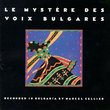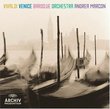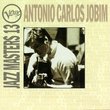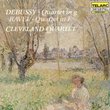| All Artists: Jean Sibelius, Herbert von Karajan, Berlin Philharmonic Orchestra Title: Jean Sibelius: Symphonies No. 4-7, Tapiola etc. Members Wishing: 2 Total Copies: 1 Label: Deutsche Grammophon Release Date: 6/15/1999 Genre: Classical Styles: Forms & Genres, Theatrical, Incidental & Program Music, Historical Periods, Modern, 20th, & 21st Century, Symphonies Number of Discs: 2 SwapaCD Credits: 2 UPC: 028945774824 |
Search - Jean Sibelius, Herbert von Karajan, Berlin Philharmonic Orchestra :: Jean Sibelius: Symphonies No. 4-7, Tapiola etc.
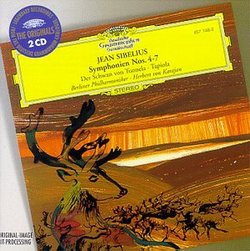 | Jean Sibelius, Herbert von Karajan, Berlin Philharmonic Orchestra Jean Sibelius: Symphonies No. 4-7, Tapiola etc. Genre: Classical
![header=[] body=[This CD is available to be requested as disc only.]](/images/attributes/disc.png?v=15401716) ![header=[] body=[This CD is unavailable to be requested with the disc and back insert at this time.]](/images/attributes/greyed_disc_back.png?v=15401716) ![header=[] body=[This CD is unavailable to be requested with the disc and front insert at this time.]](/images/attributes/greyed_disc_front.png?v=15401716) ![header=[] body=[This CD is unavailable to be requested with the disc, front and back inserts at this time.]](/images/attributes/greyed_disc_front_back.png?v=15401716) |
Larger Image |
CD DetailsSimilarly Requested CDs |
CD Reviews"He understands what I meant..." Sibelius and von Karajan DAVID A. FLETCHER | Richmond, Va United States | 12/31/2002 (5 out of 5 stars) "While it's easy to take pot-shots at von Karajan's somewhat homogenized "sound", the Berlin Philharmonic's "beautification" of angular textures, the "swooping" string entries, the "nasal" first oboist, ad naseum, it's likewise a bit stingy for reviewers to ignore what that longstanding musical partnership did so well with music they truly understood. Such was the case with von Karajan and Sibelius; to his credit, he built upon his early succcesses with the Philharmonia Orchestra, and by the end of the 1970s, he and the Berlin Philharmonic had built up a body of recordings that continue to give evidence of a great marriage between powerful symphonic writing and nuanced, thoughtful performance.The 2-disc set involved here, Sibelius' Symphonies 4 through 7, plus "The Swan of Tuonela" and "Tapiola", recaps the best of the von Karajan/Berlin era, analogue recordings made during the mid- and late-60s by DG in the Jesus Christus Kirche facility in Berlin. When the orchestra moved into the new Philharmonie in the mid-70s, the sense of "air" around the orchestra was lost, not to mention the liveness of the vaulted plaster interior. For this DG "Originals" reissue, the engineers have thinned some of the old lower midrange muddiness that often plagued some of the best recordings of the period. Bass response is a bit lighter, and consequently brass-heavy passages may seem more dominant that they did in the LP format. The net gain, though, I believe is all to the good. The greater transparency has more of the quality that EMI's engineers brought to the same locale. Analogue tape hiss is minimal, and the soundstage is both wide and deep.So much for sound; what about the performances? Karajan is tightly controlling when it comes to nuance, color, and timbre. These are not "spontaneous", spur-of-the-moment summonings from the musical ether. Frankly, a little of that goes a long way with Sibelius. It's too easy to cruise along and stop to point out this or that isolated bit of harmonic interest, or inflate a forgotten "inner voice." What von Karajan does is rather elemental to art of bringing Sibelius to life: he finds the pulse or core rhythm to the movements, and draws them together to build the musical architecture, or "span" of the piece. This doesn't imply a horse race from beginning to end, but rather a reluctance to dawdle in pools of rubato. Real orchestral power is built up and sustained, not thrown at you like a succession of one-two punches. What results is a sense of rightness and inevitability that eludes less effective conductors.In sum, then, is all that is contained an unqualified rave? No. Other conductors have made stronger cases for Symphony 7, for example (to be fair, it's also the most difficult to bring off). A bit more impetuousness in some of the massed string entries might have increased the drama in Symphony 4. The strength of Sibelius as a symphonist, and as a unique voice, offers more than one avenue for conductors and orchestras to follow in bringing his music to life. The closest parallel to von Karajan in conducting Sibelius might be Ormandy. Snatch up the Sony reissue of his recordings of Symphonies 2 and 7, outstandingly performed and recorded in Philadelphia during the late 50s. Talk about control! For a more "Finnish"-sounding reading, listen to Vanska's cycle with the Lahti orchestra (here's hoping he'll try a cycle with the Minnesota Orchestra once he's settled there!). A "bigger" sound can be had through the efforts of Ashkenazy and Davis, with the Philarmonia and LSO, respectively. But, I wouldn't want to be without von Karajan and his single-minded, powerfully executed evocation of the Sibelian landscape. His thoughts on these scores, and the magisterial playing of the Berlin Philharmonic at its peak, are not to be dismissed lightly." An unbeatable set, even for non-Karajan fans. Alexander Leach | Shipley, West Yorkshire United Kingdom | 04/26/2001 (5 out of 5 stars) "This is a 2 CD set which can be recommended to those who do not normally react well to Karajan's music making. His interpretations are legendary, and the recordings are excellent, bearing in mind they are 35 years old.The Fifth especially (recorded for the 100th anniversary of the composer's birth) is one of the recorded classics, and the recordings of the other works are hardly inferior.Sibelius himself, on hearing Karajan's 1950s Philharmonia Orchestra mono recordings of his music, said 'Karajan is the only conductor who knows what I meant', and when one listens to this set, one can hear why.If you want these works on CD, do not hesitate." Ravishingly beautiful and evocative D. A Wend | 05/18/2001 (5 out of 5 stars) "This is the finest performance of the Sibelius Fourth that I have ever heard. The sense of lyrical rapture and elemental power is truly amazing. The silky sheen of the strings and the poetic, rounded tone colors produced by the woodwind soloists are unparalleled. This is a performance that leaves one gasping for breath. I own more than 2,000 CD's and this is one of the top twenty in my collection. It's worth many times the asking price. Don't deny yourself this set!"
|

 Track Listings (9) - Disc #1
Track Listings (9) - Disc #1